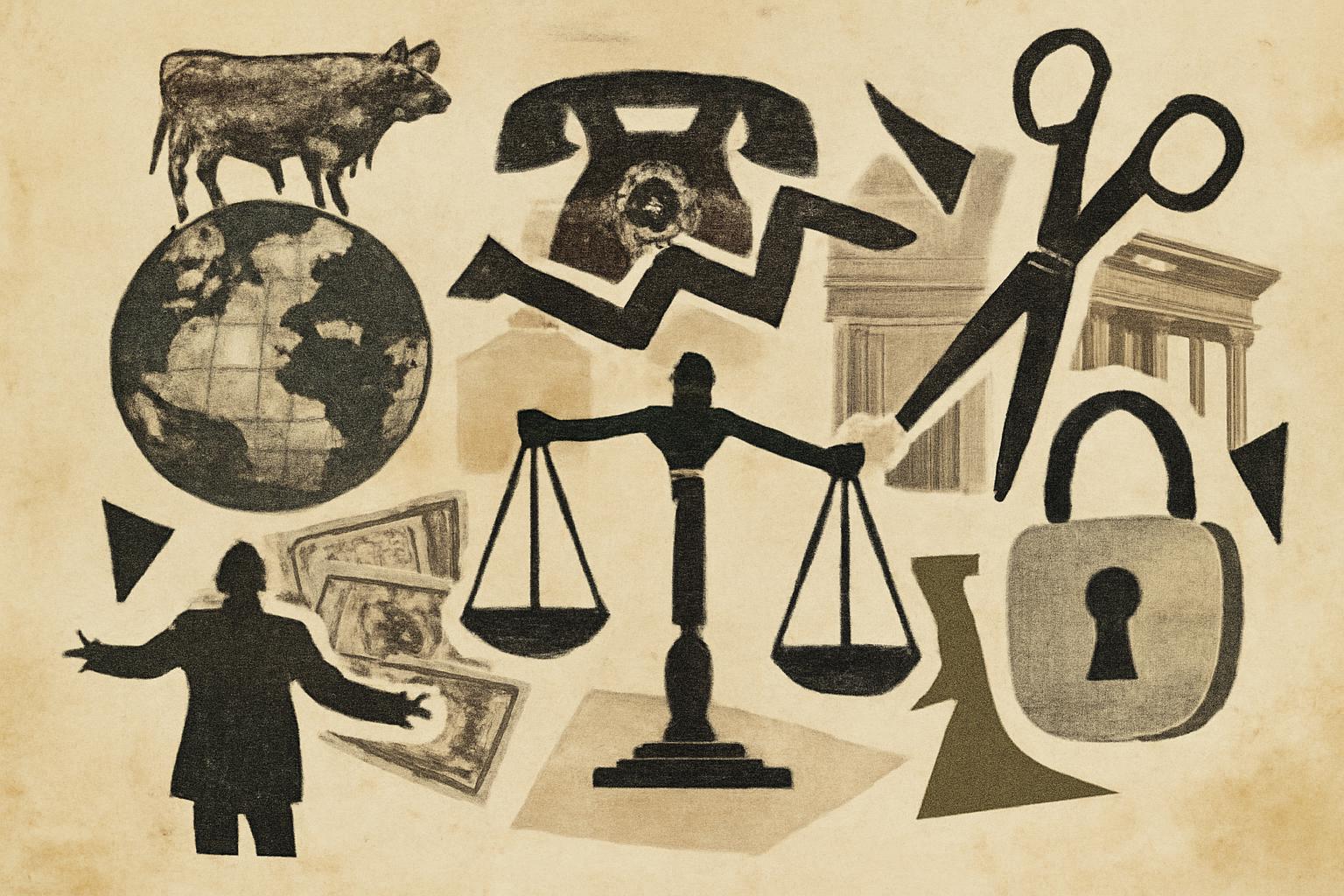Tariffs are the state exercising coercive control over exchange, not a clever fix for market failure. They force consumers to pay higher prices, raise input costs for producers, and steer capital away from the most productive uses toward politically favored industries. In other words, they weaponize the price system itself and corrupt the spontaneous order that emerges when people freely trade across borders.
Hayek would poke holes in the logic behind using protective tariffs as a policy tool. Prices are the language of dispersed knowledge, signaling where resources should go. A central authority cannot know enough to pick winners or punish others without causing misallocation somewhere else. Tariffs distort those signals, protect inefficient activities, and invite adaptation that is costly to unwind. If the aim is to improve welfare, the more reliable route is to reduce entanglements and let competition and specialization do their work, not to substitute political calculation for price discovery.
Nozick would insist that the power to impose tariffs is a coercive expansion of state monopoly over wealth. Taxation to fund protective tariffs is a form of forced redistribution under the banner of national interest, infringing individuals’ rights to own their property and to engage in voluntary exchange. A truly minimal state would have no business inserting itself into the terms of trade between strangers. Rights-centric policy would treat tariffs as an illegitimate intrusion, unless they arose from the voluntary, consent-based mechanisms that respect individual liberty.
Rand would call this a frontal assault on the principle of laissez-faire. Trade is a sphere of voluntary exchange where the moral justification rests on individual rights and rational self-interest, not on punitive diplomacy or political bargaining. Tariffs undermine moral and economic justification for wealth creation by obstructing rational self-interest and punishing consumers to subsidize favored producers. The free-market baseline is not only more efficient; it is the only framework compatible with an objective regard for individual rights and human flourishing.
If one wants to respond to geopolitical pressures without surrendering liberty, the libertarian move is clear: reduce and remove tariffs, defund or shrink the regulatory state that creates these distortions, and rely on peaceful competition, bilateral agreements that protect property rights, and private, voluntary sanctions or social incentives rather than coercive trade barriers. Let people and firms respond to price signals, not politicians. Wealth and security come from open markets, rule of law, and the defense of individual rights—not from punitive tariffs that punish the many to appease political impulses.
